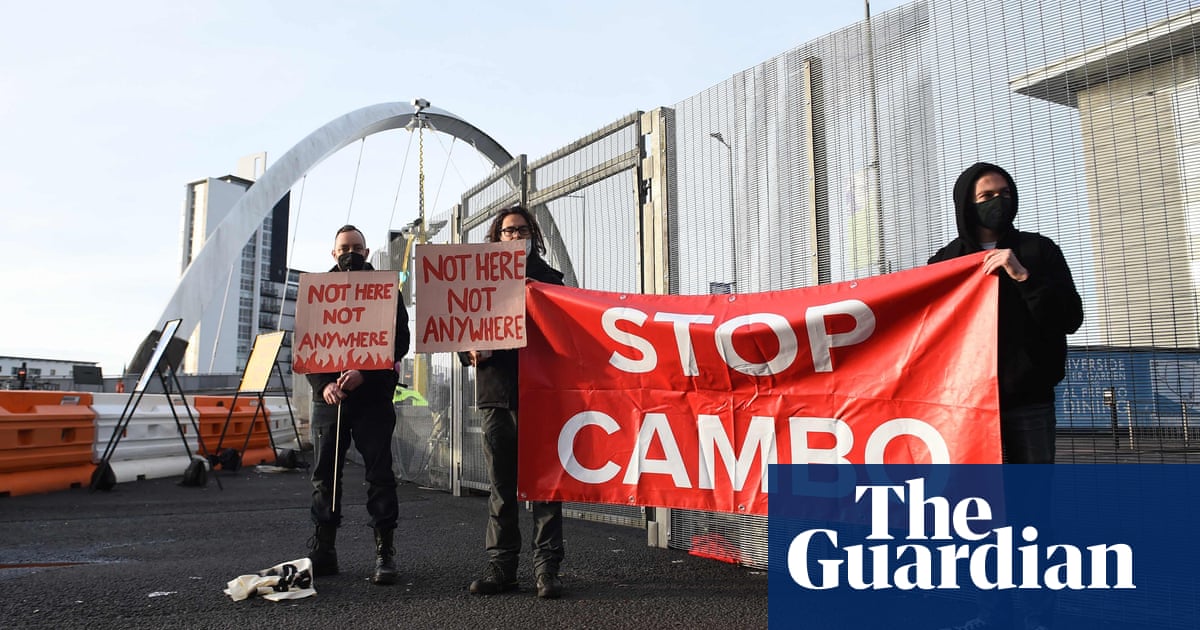
Work on the Cambo oilfield off Shetland is being paused, its developers have said, plunging the future of oil exploration in the area into doubt.
Shell, which had been planning to develop the field with the private equity-backed fossil fuel explorer Siccar Point Energy, pulled out of the project last week after fierce opposition to it from environmental activists.
On Friday Siccar’s chief executive, Jonathan Roger, said: “Following Shell’s announcement last week, we are in a position where the Cambo project cannot progress on the originally planned timescale. We are pausing the development while we evaluate next steps.”
The StopCambo campaign group said the decision was “a vindication of the opposition to Cambo voiced by thousands of people across the UK”.
The move throws the future of the project, which could yield hundreds of millions of barrels of oil, into doubt and raises questions within the UK’s oil industry over other large-scale oil schemes in the North Sea.
One industry source told the Guardian last week that Cambo’s derailment was a “turning point” for the UK’s North Sea oil and gas industry as it faces growing opposition due to climate concerns, which could spell an end to “any truly large-scale projects being sanctioned” in the future.
Green campaigners have argued that Cambo, which lies 78 miles west of Shetland’s islands in waters 1,000 metres deep, should not get a green light given the UK’s legally binding target to reach net zero emissions by 2050.
Ministers announced in March that they would allow oil drillers to keep exploring the North Sea for reserves as long as new proposed projects passed a “climate compatibility” test in addition to the existing environmental checks. But these tests would not apply to the Cambo exploration project, which was first granted a licence in 2001.
Lawyers from ClientEarth, an environmental law charity, wrote to Kwasi Kwarteng, the business secretary, just before the start of Cop26 to warn against approving projects such as Cambo by relying on outdated oil licensing policies.
The UK government was also facing a legal challenge from Greenpeace over its decision to allow the drilling at Cambo to go ahead. After Cop26 in Glasgow last month, Scotland’s first minister, Nicola Sturgeon, signalled she did not believe the project should go ahead and said it should be subject to a climate assessment.
The International Energy Agency, the global energy watchdog, said earlier this year that no new oil and gas exploration and development should be conducted after this year if the world was to stay within 1.5C of global heating, the target the UK made the focus of the Cop26 summit.
On Friday, Siccar Point Energy said that although the project had been paused it continued to believe Cambo was “a robust project that can play an important part of the UK’s energy security”.
However, industry sources said the explorer would struggle to find a new partner to replace Shell because most big listed oil companies had reduced their presence in the North Sea in recent years, and most of the smaller companies that remained would lack the financial muscle or experience to develop a field of its size.
Climate activists welcomed the decision to pause the Cambo project, and called on the government to support the UK’s oil and gas industry by ensuring a “just transition” to a low-carbon economy that supported oil and gas workers moving into clean energy industries.
Tommy Vickerstaff, a campaigner with 350.org, said the “huge and brilliant news for the StopCambo campaign” was “a testament to the power of protest”. But Vickerstaff added that the decision should have been taken by the government alongside a plan for the UK’s oil and gas workers.
“We need to see real, concrete investment in retraining and good jobs for these workers,” Vickerstaff said.
GMB, the union representing many workers in the energy industry, warned the decision to pause the oilfield amounted to a “surrender of the national interest”.












